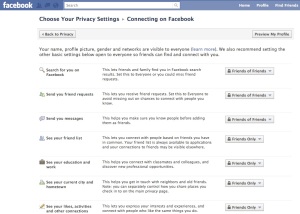Finally gotten my new 13″ MacBook Pro. Decided against the retina version since the difference wasn’t that significance. Learnt that the 13″ can also support 16GB RAM, just that it’s not quad core. But really, can I feel the speed diff with quad core? Maybe not with the usual stuffs that I do, nowadays.
Anyway, back to the not so good buying experience. I had 2 options: corporate discount or through reseller. After some thought, decided that the savings would be more if I got it through a reseller.
So I embarked on a hunt for the best deal reseller. Went down to a premium reseller that recently celebrated 10 good years. Frankly their deals are nothing to shout about. The particular sales staff that I enquire about wasn’t that good either. They don’t have any bundle deals at all, meaning you don’t get any freebies like a keyboard protector. I even had to ask if AppleCare had discount when purchased with the MBP!? The sad answer was just 10%. Had been monitoring the rates and actually know that it’s definitely more than that, but the sales insisted that 10% had always been the price. Fine, I thought, bring my business elsewhere.
So I decided that a walk-in is pointless and started to call up their rival. This reseller has a few outlets in town and the airport. From my past visits, I know a particular outlet has the deal that I’m hoping for, but just to make sure, I called up a few others along the same stretch of road to check. To my great surprise, although they were from the same company, their bundle deal was different from 1 outlet. Obviously those deals were worse off.
So the next day before getting down to the right outlet to make my purchase, I decided to call up to confirm the deal and also enquire if the 13″ MBP could support 16GB RAM. Another shocking reply greeted me, was quoted an even worse deal than the rest of the outlets and was told that they don’t sell 8GB RAM and the MBP can’t support.
Well, I still went to the outlet, but I looked for the sales guy whom I spoke to which offered the better deal. And yes, he honored what he quoted and confirmed that the 13″ MBP does support 16GB RAM. Talk about inconsistency!
After my MBP was upgraded to 8GB RAM, I asked about the warranty of the RAM, surprisingly the other sales who did the upgrade told me its only valid for a year and that if it’s faulty after a year, I’ve gotta go back and buy new RAMs. Frankly, he must have thought that I’m stupid. Most RAMs have limited lifetime warranty. Was he ignorant or trying to pull a fast one.
Next I asked him if I’m entitled to the free Mountain Lion OS upgrade when it’s released. The answer was: NO! And if I wanted to upgrade, I gotta bring in and buy from them. Well excuse me, last I checked, Apple states on their official website that I’m qualified since I bought my MBP via their reseller after 11 June! Unless they ain’t the official reseller.
Again, makes me wonder if he’s pulling a fast one or just plain ignorant.
Bad buying experience aside, I’m having fun with my new MBP. Just that it pays to do a lot of research when buying.
I’m just contemplating of trading in the 8GB RAMs for 16GB, if the price is acceptable.






